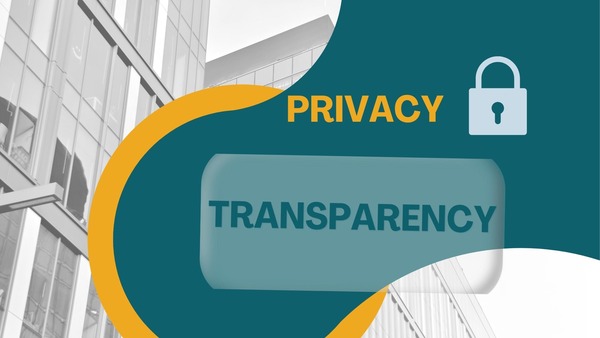Privacy or Transparency – Who Gets to Decide?

I’m all for transparency. I’ve seen it playing a crucial role for businesses, helping build trust and leading to a higher level of engagement, loyalty and accountability. But should transparency be forced, that too by an entity that is inherently opaque about its operations?
The Irony
The modern regulatory landscape presents a profound irony. We live in an era where governments demand transparency and disclosure from the “private” sector. Regulations mandate transparency, creating a compliance burden that fundamentally contradicts the spirit of a free market.
Businesses are now compelled to provide a mountain of information to the government. This is not a matter of choice. Think of the endless stream of regulatory filings, tax returns, and licenses required just to open one’s doors. This mandatory disclosure, framed as necessary for the public good, becomes a database for the state – granting the government insight into the inner workings, competitive strategies, and financial health of private enterprises.
In a truly free society, shouldn’t the government be transparent to the people? Yet, governments and big institutions that write these rules often continue to operate opaquely. Their data practices, internal bureaucracy, and decision-making processes remain insulated from the scrutiny they impose on the private sector.
The Most Life-Changing Innovation
A heavily regulatory climate poses a massive threat to innovation. Think about it. Would laws like GDPR have prevented the most life-changing innovation of our times – the Internet. Would it have crushed the concept before it could take root? Without permissionless innovation, competitive risk-taking, and the freedom to fail, we wouldn’t have witnessed the birth and growth of the World Wide Web.
Tim Berners-Lee created the World Wide Web while working at CERN. This was originally developed for information-sharing among scientists around the world. In 1993, CERN made a momentous decision – to release the WWW software into the public domain. The software could be used, modified, and distributed by anyone. This paved the way for the birth of the Internet as we know it today.
Throw in some protectionist policies and something like this would never have been allowed. Add some government licenses and the idea would have been crushed before it became anything meaningful. And, ironically enough, the Internet has become so important that we think of any disruption as an act of oppression.
CERN is not the only one. Linux launched an open source operating system, which is what runs Android phones today with a market share of more than 70%. The private sector should have the freedom to choose when to be transparent and when to protect its intellectual property.
The free market thrives on permissionless innovation, competitive risk-taking, and the freedom to fail—all of which are suffocated by excessive bureaucratic demands for data and compliance. If we genuinely want a society driven by innovation and prosperity, we must reverse this ironical trend. We must demand radical transparency from the state and restore the presumption of privacy and freedom to the private sector. Let the engine of prosperity chug along, without being choked by red tape.
 Rakesh Wadhwa. Ever since, I was a school boy, I knew India was on the wrong path. Socialism was just not what we needed to get ahead. Government controlled our travel; government controlled our ability to buy and sell; and government controlled our freedom to move our money. My life has focused on the inherent rights people have. When I was in college, I never understood, what the governments meant by their "socialistic attitude". If people are free to buy, sell and move their capital themselves without any restrictions by state, then the welfare of people is inevitable & hence the countries they live in will become wealthy. The government has no right whatsoever, to point a finger at me or my business. I am not a revolutionary. I just want to light up my cigarette and not get nagged about it. I believe in non-interfering attitude to attain more.
Rakesh Wadhwa. Ever since, I was a school boy, I knew India was on the wrong path. Socialism was just not what we needed to get ahead. Government controlled our travel; government controlled our ability to buy and sell; and government controlled our freedom to move our money. My life has focused on the inherent rights people have. When I was in college, I never understood, what the governments meant by their "socialistic attitude". If people are free to buy, sell and move their capital themselves without any restrictions by state, then the welfare of people is inevitable & hence the countries they live in will become wealthy. The government has no right whatsoever, to point a finger at me or my business. I am not a revolutionary. I just want to light up my cigarette and not get nagged about it. I believe in non-interfering attitude to attain more. 
 The Bastiat Award is a journalism award, given annually by the International Policy Network, London. Bastiat Prize entries are judged on intellectual content, the persuasiveness of the language used and the type of publication in which they appear. Rakesh Wadhwa won the 3rd prize (a cash award of $1,000 and a candlestick), in 2006.
The Bastiat Award is a journalism award, given annually by the International Policy Network, London. Bastiat Prize entries are judged on intellectual content, the persuasiveness of the language used and the type of publication in which they appear. Rakesh Wadhwa won the 3rd prize (a cash award of $1,000 and a candlestick), in 2006.
What the readers are saying…